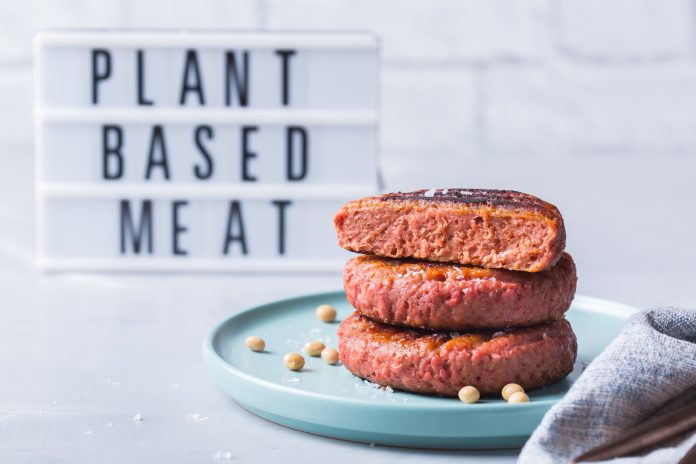Siska Pottie, Secretary General of the European Alliance for Plant-Based Foods, argues that instead of imposing restrictions, the EU should concentrate on creating fair conditions that allow sustainable food producers, including those in the plant-based sector, to thrive and innovate in a competitive environment
This summer, the European Commission unveiled a proposal to restrict the use of 29 common meat-related terms for plant-based food products, including words like ‘bacon,’ ‘chicken,’ and ‘ribs.’ Framed as a consumer protection measure under the revision of the Common Market Organisation (CMO) regulation, the plan is a misstep. But beyond the labelling debate, this reflects a deeper structural issue: The EU still lacks a level playing field for all food producers, especially those delivering on the bloc’s own goals for health, sustainability, and food resilience.
The proposed labelling restrictions come five years after the European Parliament rejected a similar amendment and less than a year after the European Court of Justice (ECJ) struck down a comparable ban introduced in France. In that ruling (Case C-438/23), the Court affirmed that current EU legislation already provides sufficient consumer protection and transparency. The European Commission itself has made the same point repeatedly.
Consumers are not confused
At the heart of the debate lies an assumption that consumers are being misled by plant-based foods labelled with traditional meat terms. Yet data across Europe consistently shows this is not the case.
According to a comprehensive 2025 consumer survey by the European Consumer Organisation (BEUC), around 80% of EU consumers support the use of familiar meat terms on plant-based products as long as the packaging clearly indicates that the item is plant-based or vegan. Most products already do this, using qualifiers such as ‘plant-based,’ ‘meat-free,’ or ‘vegan’ alongside traditional descriptors like ‘sausage’ or ‘bacon.’
Behavioural evidence supports this view. Multiple EU-wide studies, including research conducted in Germany, Austria, Spain, Portugal, Belgium, and Greece, show that over 90% of consumers can correctly identify plant-based meat alternatives in supermarkets. Instances of accidental purchases are rare and well within the margin of everyday consumer decision-making errors.
In fact, removing familiar terminology might do more harm than good. Empirical research shows that stripping plant-based foods of recognizable names makes consumers more confused about taste, preparation, and usage. The Advocate-General of the ECJ even noted that creating arbitrary new terms could lead to greater uncertainty among consumers.
A sector that delivers, but still lacks a level playing field
Plant-based foods consistently align with three key EU priorities: improved public health, lower environmental impacts, and enhanced food security. Yet instead of being supported, the sector is too often met with new obstacles, of which potential labelling restrictions are just one example.
Disparities in taxation, gaps in public procurement, unequal access to promotion funding, and inconsistent labelling rules all contribute to a fragmented market landscape. The result is a structural disadvantage for companies trying to offer lower-impact, healthier alternatives, even when consumer demand is growing and the environmental case is clear.
If the EU is serious about encouraging sustainable food systems, these systemic inequalities must be addressed.
Let’s focus on what matters
Europe’s food system faces real, urgent challenges from the volatility of global supply chains to the need to cut emissions, boost biodiversity, and secure long-term food resilience. In that context, regulating the vocabulary of tofu strips is a distraction we cannot afford.
More importantly, it signals the wrong priorities. Instead of proposing restrictive measures, the Commission and Parliament should be creating enabling conditions for all sustainable food producers, including the plant-based sector, to thrive.
That means fairer tax treatment, funding access, consistent rules, and above all, a level playing field. The plant-based sector should be seen as a partner in the transition, not a competitor.
Europe has the opportunity to lead globally on sustainable food, but only if it stops blocking the very innovations it claims to support.











